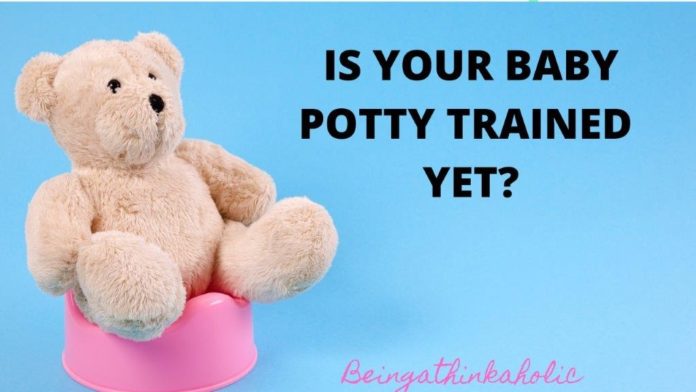I remember the first day I heard that dreaded question every parent avoids having to answer from their friend or family member, that is far removed from the magnitude of what they are actually asking. “Is your baby potty-trained yet?” I was oblivious to what they were ultimately asking me. As a first-time mom in my thirties, I was clueless to all the intricate developmental milestones that babies would need to advance through. As a teenager and the go-to family babysitter, the most it required me to assist with was bottle feeding and diaper changes. I honestly thought babies magically became trained. I am almost serious. I certainly don’t remember being trained by my parents. I just woke up one day and went potty! If only it were really that simple.
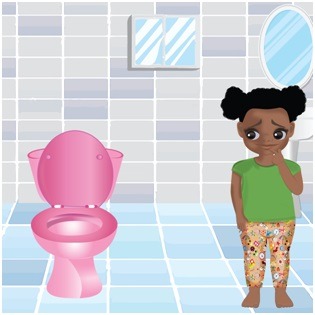
In my most diplomatic way possible, I would respond to the question with, “not yet” or my favorite “we are working on it”. Only to hear the response of how and when they potty trained their child(ren) over thirty years ago when they were a year old.
I absolutely loved the response from my ninety-five-year-old grandmother, who told me that my daughter would be fully potty-trained by now if I had put her on the potty when she was nine months. Of course, that is how she potty trained her six children in the fifties. I love my grandmother along with all of my friends and family, but much of their advice and commentary fared to be counterproductive and ultimately offensive. If you are anything like me, the following tips and tricks you have heard and tried, with little to no success.
If you want to know the right age to start training your child, you might want to read, What is the Right Toilet Training Age for Your Little One?
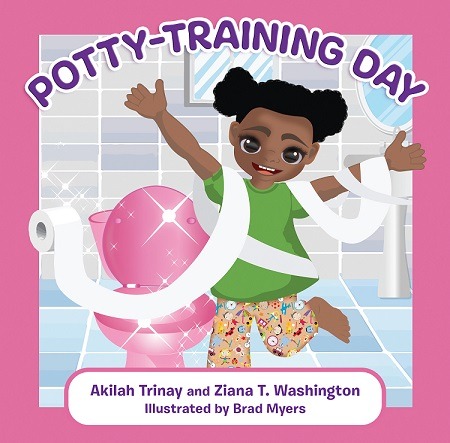
Tips and Tricks:
- You know it is time to start when you are changing fewer diapers (until around 20 months’ toddlers still pee frequently)
- Purchase big kid underwear (and choose a character they like)
- Involve the toddler in picking out the potty (preferably one that makes noise)
- Potty on a schedule (every 20-30 minutes)
- Use a sticker chart to track and reward progress (or any type of reward system
- Shower your toddler with praise
- Train by example (you got to show them how it is done)
- Watch them closely (look for “I have to potty” signs)
- Establish standard bathroom talk
- Don’t punish mistakes
- Avoid the bathroom battle
- Make sure they are ready
- Dress your toddler for proper potty training success (It’s all about the clothes or the lack thereof)
- Make pooping less scary
- Get rid of all diapers and pull-ups (I mean ALL of them)
- Try the 3-day method and prepare for the 72-hour marathon
- Liquids and lots of high fiber snacks
- Prepare for accidents (buy extra clean-up supplies, undies, towels and sheets)
In all honesty, all the advice did not prepare me for the 3-day challenge. A few hours into the process, I was exhausted, frustrated and no longer willing to endure the commitment it took to see the process through until the end. It wasn’t my baby; it was me. I internalized the pressure and made it a hurdle I needed to tackle before she was two because everyone else could do it, why couldn’t I? I was an excellent mother and achieved her walking at ten months, how much more difficult was this? I was short with my daughter and potty training felt like punishment for the both of us. Then I had to have an enlightening moment. I gave up trying to meet someone else’s goal and standard and went at our own pace.
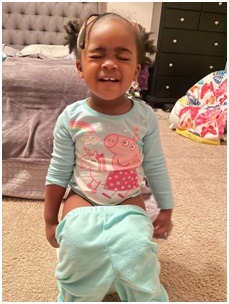
As a writer and author, the challenge of the process inspired me to dedicate my first children’s book to potty training. I found a lot of nonfiction books on how to potty train, but very few on the fictional side of things with characters that looked like my daughter. My intention was to celebrate the process and encourage parents to stick with the process and go through it together. It is frustrating and rewarding at the same time. The joy on my baby’s face when she peed in the potty the first time was priceless, likewise the times when she was certain that she did, only to find the potty empty, were just as memorable. We would sing many songs (her favorites included: Twinkle Twinkle Little Star and Itsy Bitsy Spider). She might even watch her favorite shows on her tablet or cell phone to keep herself entertained. I incorporated her reactions, our conversations, and ultimately her statements into the story. I imagine that Potty-Training Day is exactly how my daughter feels and felt about the process. Until she no longer wets herself or poops in her pants, we are still training.
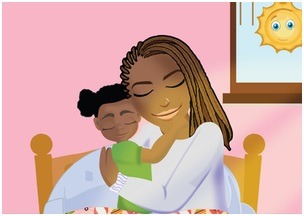
Before I knew it, we created a safe place to learn and have fun at the same time. My daughter would request to sing certain songs or to read a specific book. Once Potty-Training Day manifested into printed book form, she was requesting to read it while on the potty and began reciting the text back to me. Those moments made it all worth it. Yes, I am a woman, a single mother, and teaching my daughter this very important developmental milestone. As stereotypical as it might sound, it is my reality and one that I celebrate with honor. Years later we will look back and see ourselves growing through these moments and celebrating our journey together, on our terms, on our timeline.
“Is your baby potty-trained yet?” No, not yet, but we are working on it!

